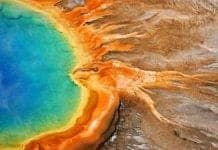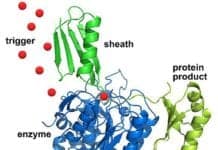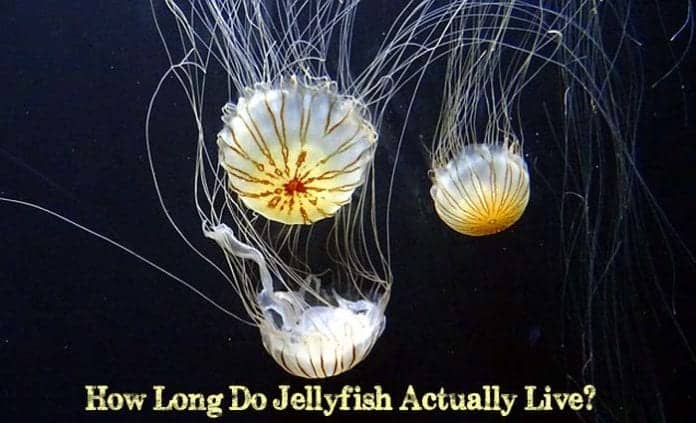
There are many circulating rumors about jellyfish being able to live forever. But is this true? Are jellyfish really immortal creatures? How long do jellyfish live?
The answer to these questions is, of course, depending on the species, jellyfish have a different lifespan. Aside from that, there are other factors to consider, such as whether they are free-living in the wild or are held in captivity. Find out more answers below.
Life Cycle of Jellyfish
Normally, jellyfish have two life stages: the polyp stage and the medusa phase. During the polyp stage, they are just attached to hard substrates and begin to feed and grow. On the other hand, during the medusa phase, the reproductive stage, they begin to be free-swimming and stay afloat among plankton.
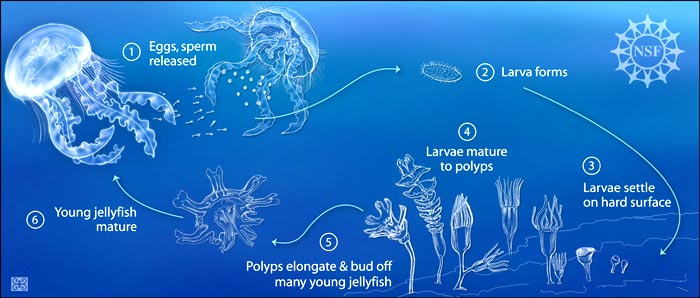
It is also during the medusa stage that they produce the eggs and sperm into the water and after being fertilized, these will then again develop into new polyps. After that, the cycle goes on.
![]()
How Long Do Jellyfish Live?
As mentioned earlier, the lifespan of jellyfish depends on the species and basically ranges from just a few hours to several months up to years.
- One of the most popular jellyfish, the moon jellyfish (Aurelia aurita), is known to have a lifespan of 12 to 18 months but with proper living conditions, can live up to 20 years.
- The Flame jellyfish (Rhopilema esculentum) has a rather shorter lifespan as it can only live from three months up to a maximum of one year.
- Another famous jellyfish is the Cannonball jellyfish (Stomolophus meleagris) which normally can in the wild for three to six months in the wild and several months longer when held captive.
- The most stunning and yet possibly the largest one, Lion’s mane jellyfish (Cyanea capillata), has an average lifespan of one year.
![]()
The Immortal Jellyfish
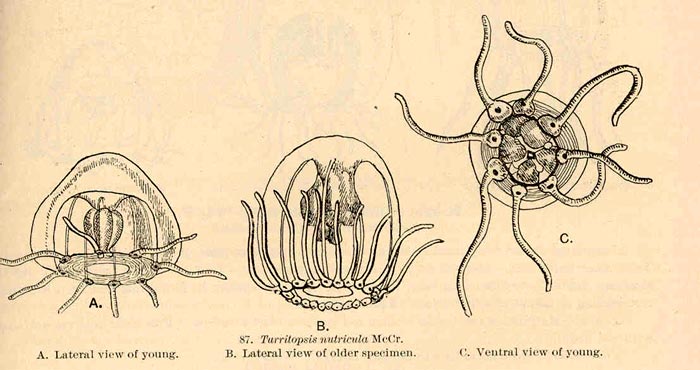
Interestingly, a certain species of jellyfish known as the Turritopsis nutricula or the “Immortal jellyfish” was observed by scientists to have the ability to regenerate its cells back to their original state and grow them again. In other words, this jellyfish, as its name suggests, can have infinite lives. While this type of jellyfish was originally discovered in the Mediterranean Sea, some Turritopsis were already found swarming the seas of Japan and the Atlantic ocean near Panama.
- When it senses danger or is being starved, the jellyfish begins to attach itself to a surface and then have its cells be transformed into different types (i.e., muscle cells to nerve cells, or sperm or egg cells to muscle cells).
- But while this certain jellyfish species can continuously regenerate, this process can only happen after sexual maturation. Meaning, they can either do or die when faced with predators or encounter a disease during their polyp stage.
![]()
Nevertheless, these jellyfish make a good subject for scientific studies about cell regeneration that may have timely application for issues such as aging and diseases.
![]()




